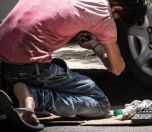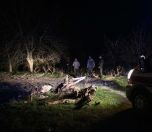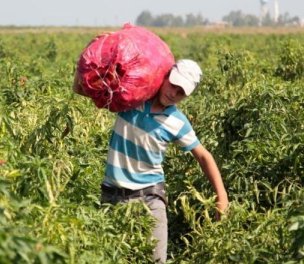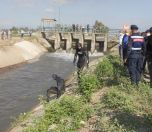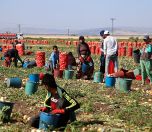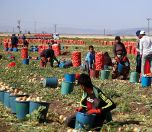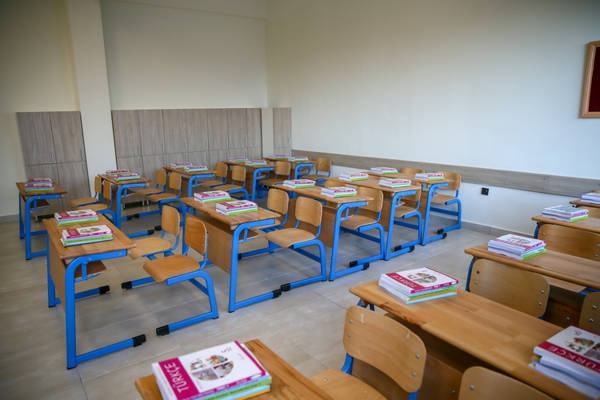Click to read the article in Turkish
With the warmer weather, the news of children drowning in irrigation canals is also increasing. Most of the news goes like this: "A child's deceased body was found in the water channel after entering it to cool off." But can we address these deaths entirely in this way?
Pınar Abdal from the Health and Safety Labor Watch (İSİG Assembly), which compiles data on occupational homicides in Turkey, says that they frequently come across these news after May, every year. "And most of them are the occupational homicides of children," she says.
More than half are children
Agriculture is the sector with the highest rate of paid and unpaid family worker child labor in Turkey and the main sector in terms of child labor.
Occupational homicides of children are mostly concentrated in agriculture, one of the areas with the highest child employment and poor working conditions. It is known that over half of the inhabitants of the settlements where seasonal mobile agricultural workers are accommodated are children. Among them are small children that their families have to take with them.
July and August are the months when the most child labor homicides occur. An important reason for this is that more children are employed as schools are closed. The most important reason is that mobile seasonal agricultural work, which takes 6-7 months, intensifies in these months.
Abdal states, "It is not a coincidence that the children of agricultural workers who are employed during periods up to 10-12 hours a day, often without even being paid a daily wage and who are deprived of even the most basic rights, are injured or killed while working under these conditions, it is the result of a chain of policies and therefore tolerance."
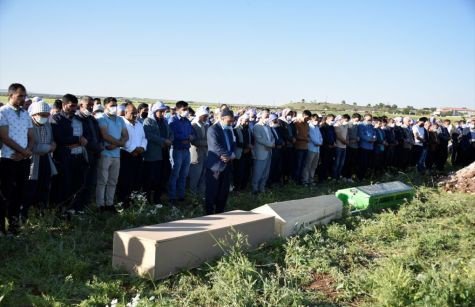
* Photo: Cuma Sarı - AA (The deceased bodies of Narin (15) and Remziye Büyükçay (9) and Saadet Karataş (10), who drowned in an irrigation canal in Osmaniye, were laid to rest in Urfa on April 18.)
'No protection around canals'
Ertan Karabıyık from the Development Workshop explains how drowning occurs in irrigation canals in Adana and Mersin regions, where seasonal agricultural workers are concentrated, says:
"Large irrigation canals are flowing fast. Whether you know how to swim or not, you suddenly get caught and lose control. Due to its nature, you cannot hold on to a place, and you cannot get out. There is nothing to hold on to like a branch or something. Since there is no protection around the canals... In the past, there were also problems with the canals in the cities. They surrounded those in the city with protection and drownings decreased."
Scorpion bites, falling from tractor, poisoning...
However, drowning in irrigation canals is not the only reason for the increase in the deaths of children in agricultural labor after May.
There are those who fell from the tractor, fell out of the hoeing machine and died, those who were poisoned by snake and scorpion bites, small children who accidentally got ran over by a tractor...
Pınar Abdal continues by saying:
"53 percent of the children who lost their lives in occupational homicides are agricultural workers. Children working in the agricultural sector lose their lives by truck and tractor accidents to reach the agricultural land, exposure to chemicals such as insecticides and pesticides, working in extremely hot and humid environments, and insect bites."
'They found the child in the water pipe'
Karabıyık also says that all deaths should be taken into consideration, not just drowning caused by irrigation canals:
"There are many cases of mobile seasonal agricultural child workers. Children poisoned and died as a result of drowning in the sea and in the Black Sea, poisoning, snake and scorpion bites...Those who fainted from the excessive sun, fell off the tractor and died... In an incident in Konya, they found a small child in a water pipe. This is the big picture."
Regarding the news of deaths in the irrigation canals that have just kept coming over the past month, Pınar Abdal says:
'Toilet, shelter, electricity, garbage: Biggest problems'
"Drowning in dams, rivers, or other water sources close to agricultural areas, especially in water channels, is just one of the causes of the deaths of dozens of child workers every year.
"The reality of the agricultural sector based on the exploitation of child labor and the inhumane working and living conditions are what lie behind the drowning of children in these waters, which they enter for the purpose of 'cooling down'. One of the most common problems in places where even the most basic human needs such as toilets, shelter, electricity, and garbage collection are not met, especially in places where seasonal agricultural workers are accommodated, is the lack of constant access to water.
"While tankers or transport water is mostly used as a source of drinking or utility water in the working environment, workers have to use the closest water resources for other basic needs, and even meeting their daily needs becomes a cause of 'death' for children in these conditions.
'The main body is child and woman labor'
"Especially in seasonal agricultural work, it is rare that the children of families migrating to agricultural land are not in the labor process. In order for the work done to bring income, the whole family's effort must be put into action. Therefore, children who are a part of seasonal migration have to be a part of agricultural labor in places where they go.
"The main body of around 2 million seasonal agricultural workers in Turkey consists of child and woman labor.
'Agricultural enterprises are left out of control'
"Agricultural enterprises employing fifty or fewer workers have been turned into a sector that is excluded from the scope of the Labor Law and workplace inspections and where sanctions are not possible.
"Therefore, the agricultural sector is, in fact, an area where more exploitation of child labor and the occupational homicides of children are tolerated as an area that laws and policies refrain from seeing."
'3-4 families get together and hire caregivers'
Ertan Karabıyık, on the other hand, adds the following about the small children that their families have to take to the fields apart from child workers:
"The biggest problem in the picture of seasonal agricultural workers is that there are no mechanisms to keep children safe. Children who have to be with their families should be protected.
"In such processes, it is necessary to inform the field and garden owners, agricultural intermediaries, and families. It is important to provide safe environments in places where children are present. Who will take care of these children in tent environments? You go to work in the field. You have to take them with you. You leave the children in the shade of a tree.
"In the tent settlement, there are those who hire foster mothers, three or four families come together. But there is no safety mechanism for this."
'Child labor does not decrease with daily campaigns'Pınar Abdal from the İSİG Assembly says that the demand for cheap labor has increased due to the economic crisis and the pandemic: "It is not possible to reduce child labor, which is a structural problem of the labor regime, with daily campaigns and projects. Current labor policies are not based on eliminating child labor, but on the contrary, increasing it anyway. "During the pandemic period, combined with the effects of the economic crisis, the decrease in household income and the increase in demand for cheap labor, as well as the physical closure of schools, led to a further increase in child labor. During this period, even during the curfew under the age of 20, children, especially seasonal agricultural workers, continued to work by being exempted from the curfew and travel ban. "On the one hand, 2018 is declared the 'Year of Combating Child Labor' and activities are carried out to prevent child labor within the scope of METİP (The Project for Improvement of the Working and Living Conditions of Seasonal Agricultural Workers); on the other hand, child labor and occupational homicides of children will increase and the working age of children will gradually decrease and jobs for children continue to shift towards increasingly dangerous jobs. "Underlying this contradictory situation is the exploitation of child labor policies to respond to the capital's need for cheap, precarious, and unregistered labor in Turkey. On the one hand, public opinion work is being carried out; on the other hand, the arbitrariness and irregularity of the agricultural sector, where unpaid family labor and work at a young age are common, are ignored and fostered." |
(AÖ/DCE/SD)





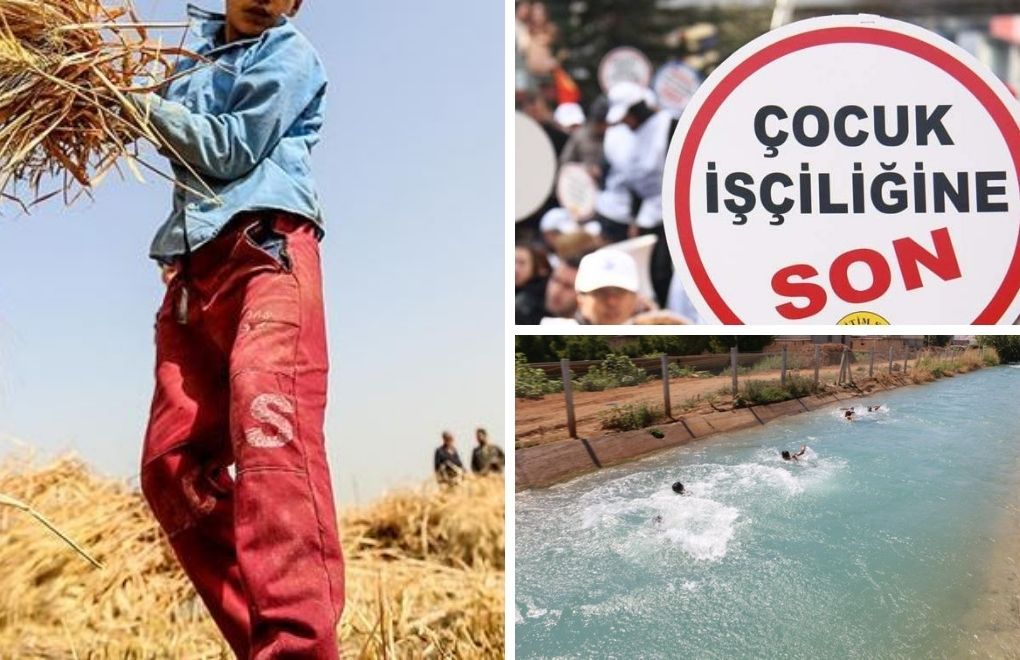
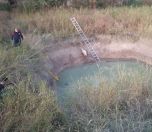
-132.jpg)

